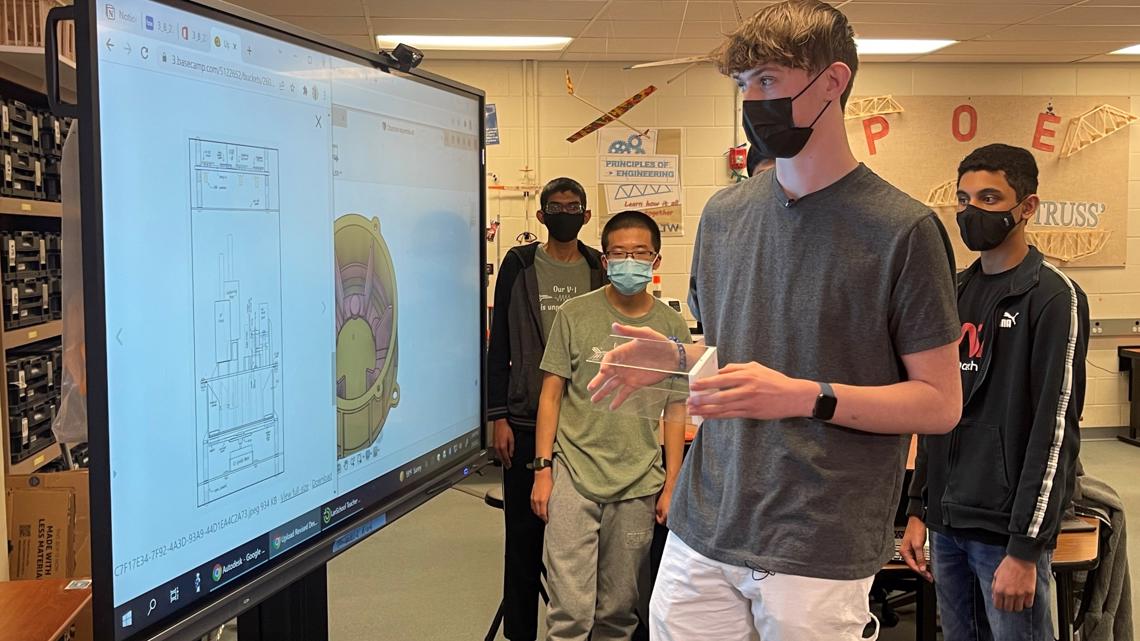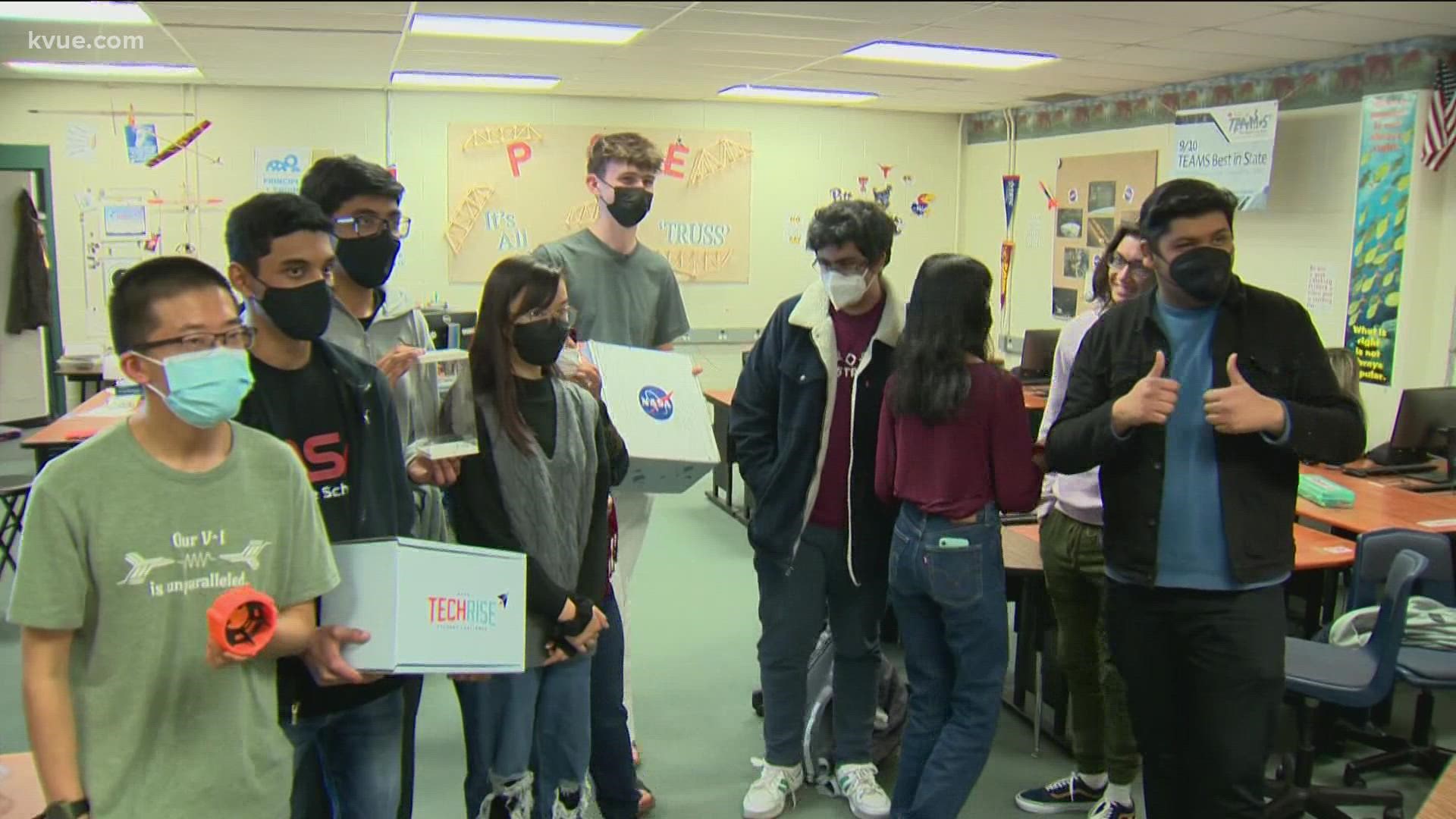AUSTIN, Texas — A group of McNeil High School students have been selected to design experiments that will be sent to the edge of space.
The McNeil Robotics Team was one of 57 teams selected nationwide by NASA as a winner of the TechRise Student Challenge, where students propose experiments that will autonomously operate and collect data from the edge of space aboard a suborbital rocket or a high-altitude balloon test flight.
"For a while after we submitted our proposal, we were like, 'Whatever happens, happens,' type of thing. Then when we learned that we won, it was so exciting," said Shreyara Javelu, a senior at McNeil High School.
Javelu is a part of the team. Her colleague, Camden, serves as one of the original members on the project. As a group, their goal is to find out if the purifying powder in their small four-by-four-by-eight container that will launch into space would work in microgravity.


"That's something that hasn't been tested before, and if it ends up working out, then that could be something that helps out future space travel or just space in general," said senior Camden Stabeno.
As part of their win, the students received funds to make their proposal a reality and will be working on the project throughout the week. Also, the students are getting feedback from NASA along the way.
"We are also currently taking input from the NASA mentors. We meet with them virtually like once a week or so for that," said Javelu.
The high-schoolers' experiment will launch into space at an unknown date in 2023, but the container will operate and collect data from the edge of space aboard a suborbital rocket
The team will put their whole design in the small box that will be put into a rocket. The group will watch it launch into space for a few minutes before it comes back down. Inside the box, there will be a camera and a light to track the progress while in orbit.
"There's going to be a lot of wires and stuff going everywhere, but what we have currently is a simple diagram to show what all has to fit in there, which will be, I think, the biggest challenge and be under the one-pound weight limit," said Stabeno.
All with the hopes to learn more about how our galaxy operates and allow the team to boldly go into the future.
PEOPLE ARE ALSO READING:

